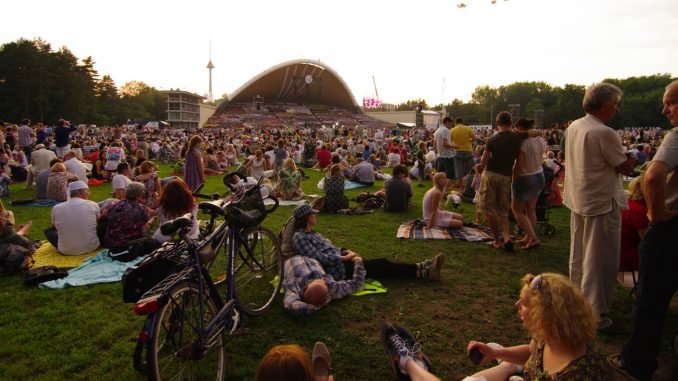
Conditions under which their parents grew
Deputy chairwoman of the World Lithuanian Community (WLC) Dalia Henke and other guests from Australia, Germany and Canada lived in the Guest House of Mykolas Romeris University in Didlaukis street, Vilnius.
“Some families from the U.S. simply left the dormitory. If people are on holiday once a year, they do not want to bother. The conditions were too modest for them. As a result, they changed their accommodation. And we lived amiably. Most importantly, there was a roof over our heads and good food,” said Henke.
It seemed as if time had stopped in dormitories: there were no upgrades since the Soviet era. However, Henke said that she had now complaints about bathroom facilities: shared showers and toilets. Antiquated installations were only in the rooms and guests did not have to use them.
Some of the guests accepted such conditions as a means of education. “Parents who accompanied their children from Canada said that they were to stay and that they were not ready to change accommodation because children were to have an opportunity to appreciate how good conditions they enjoyed in their own houses – and to see how we once lived,” said Henke.
According to her, living in Soviet-era dormitories was an exotic experience for children of Lithuanian expatriate families. “This is an educational activity for children to see the conditions under which their parents grew up and to see how good living conditions they have in the U.S., Canada or Australia. Compared with participants from Lithuania, we lived in luxury,” said the guest from Germany.
Former president Adamkus lived modestly as well
According to Henke, everything depends on the attitude. She reminded that, while visiting Lithuanian 16 February High School in Germany, Lithuania’s former president Valdas Adamkus stayed in a very modest two-star hotel. “Even if his security personnel were sceptical about the place, he insisted to stay there,” said Henke.
Henke had an opportunity to talk with students from Lithuania. “They had one question for me: whether Americans had an opportunity to choose from five meal courses,” smiled Henke. The guest from Germany assured the students that food was the same for all.
Henke praised the organizers of the festival who managed to feed eight thousand people on time and in place. “I would like to highlight that food was very good. We were astonished that such high-quality food was served for so many people. There was no need for restaurants, everything was splendid,” said Henke.
However, vegetarians were still disadvantaged – there were no special provisions for them.
According to Henke, participants of the Song Celebration were in euphoria after the event and determined to come up with ways to get even more singing and dancing Lithuanians to come to the next Song Celebration which will take place in 2018. All Lithuanians who live abroad come to the festival on their own funds.
“This will last only a few days”
It was the sixth time that Violeta Smieliauskaitė-Fabianovich, the leader of Grandies ensemble in Chicago, participated in the Song Celebration in Lithuania. According to her, children were very satisfied; Lithuania and the Song Celebration left a huge impression on them. Some even said that they would like to live in Lithuania.
But were not children born in America frightened by such modest living conditions? “We have our attitudes. If someone does not feel comfortable or if he or she is not used to it, we say: this will last only a few days; no one is going to die. Take our dormitory, for instance: not the best one, we stayed in the same dormitory 10-15 years ago, nothing has changed since then. We accept that different conditions are found in different places. After all, Lithuanians who come to the U.S. are not pleased with all the things they find here,” said Smieliauskaitė-Fabianovich. According to her, this was the way for children to experience different living conditions.
Lithuanians slept on the floor
Lithuanian Folk Culture Centre, organizers of the Song Celebration, accommodated foreigners in guesthouses, dormitories and hotels. In total, 1,100 Lithuanians from 13 countries came to the festival. The biggest delegations came from the U.S., Canada and Russia.
“At least I heard no complaints about accommodation. They were put up in hotels and dormitories. I think that they, especially the elders, understand that dormitories here are not as good as in other countries where they live. However, it is as it is – our resources are limited, we cannot accommodate them in 5-star hotels,” said coordinator of Lithuanian emigrants Sandra Stalnionytė.
Stalnionytė highlighted that Lithuanians from outside Vilnius who were given accommodation in schools had to sleep on the floor, while from abroad got to sleep in beds.
Translated by Audra Šeputytė

Be the first to comment